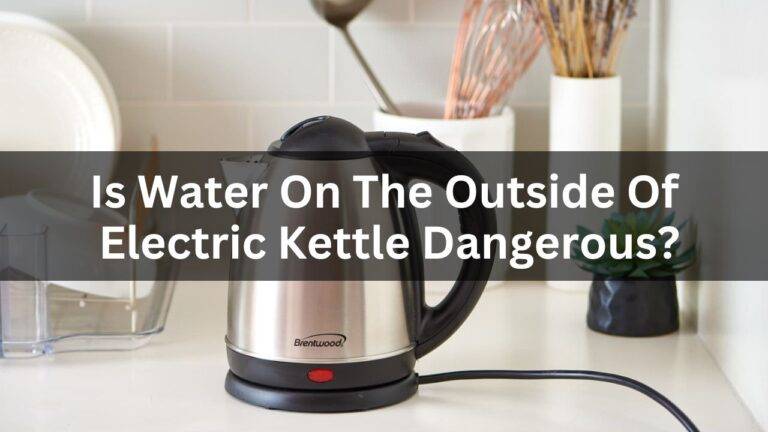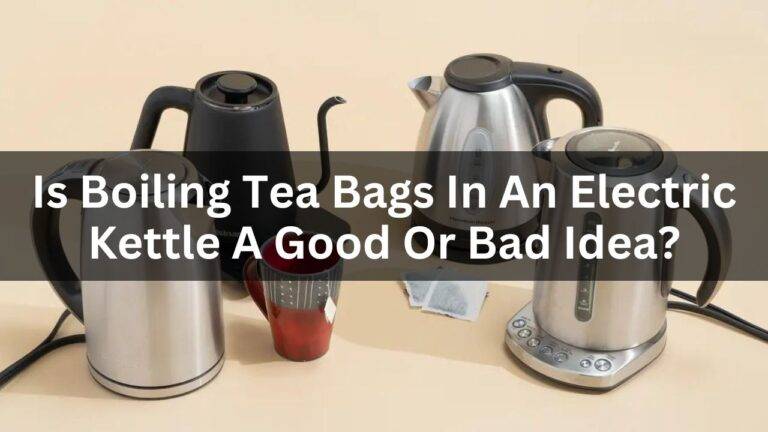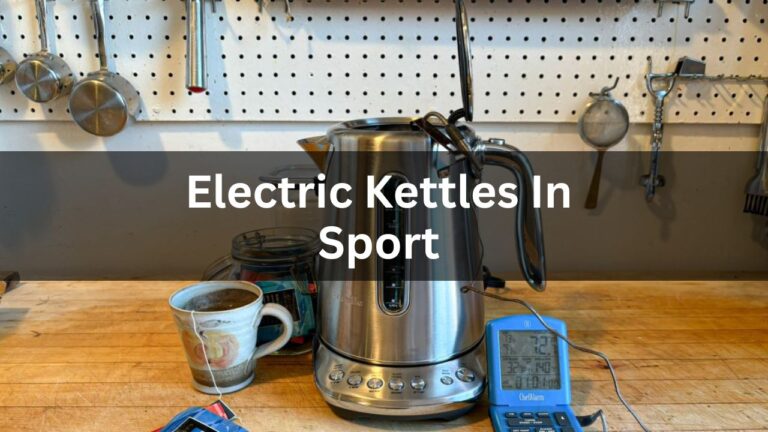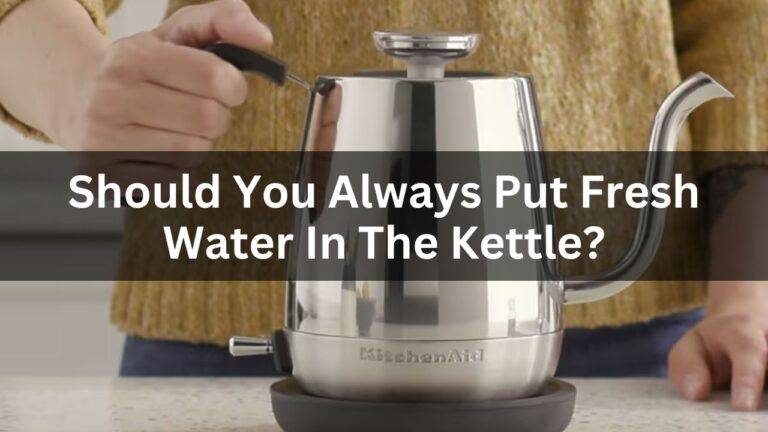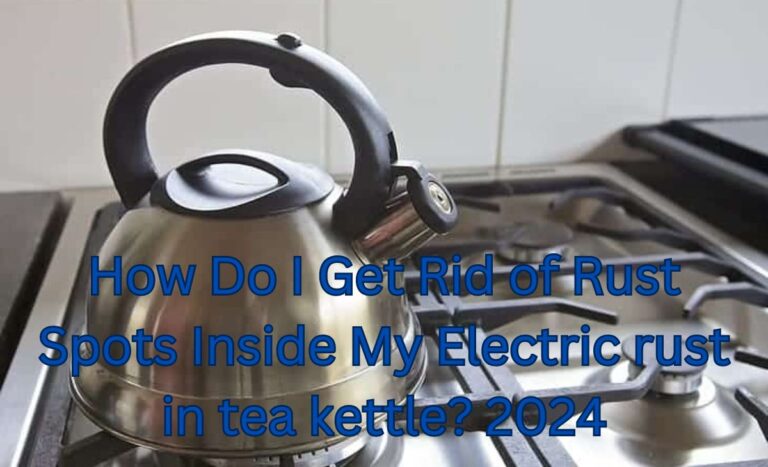Do You Use Bottled Water To Boil The Kettle?
If you were to ask many people whether or not you should use bottled water in your kettle. They would answer yes. Before using bottled water, always make sure that the bottled water has not expired.
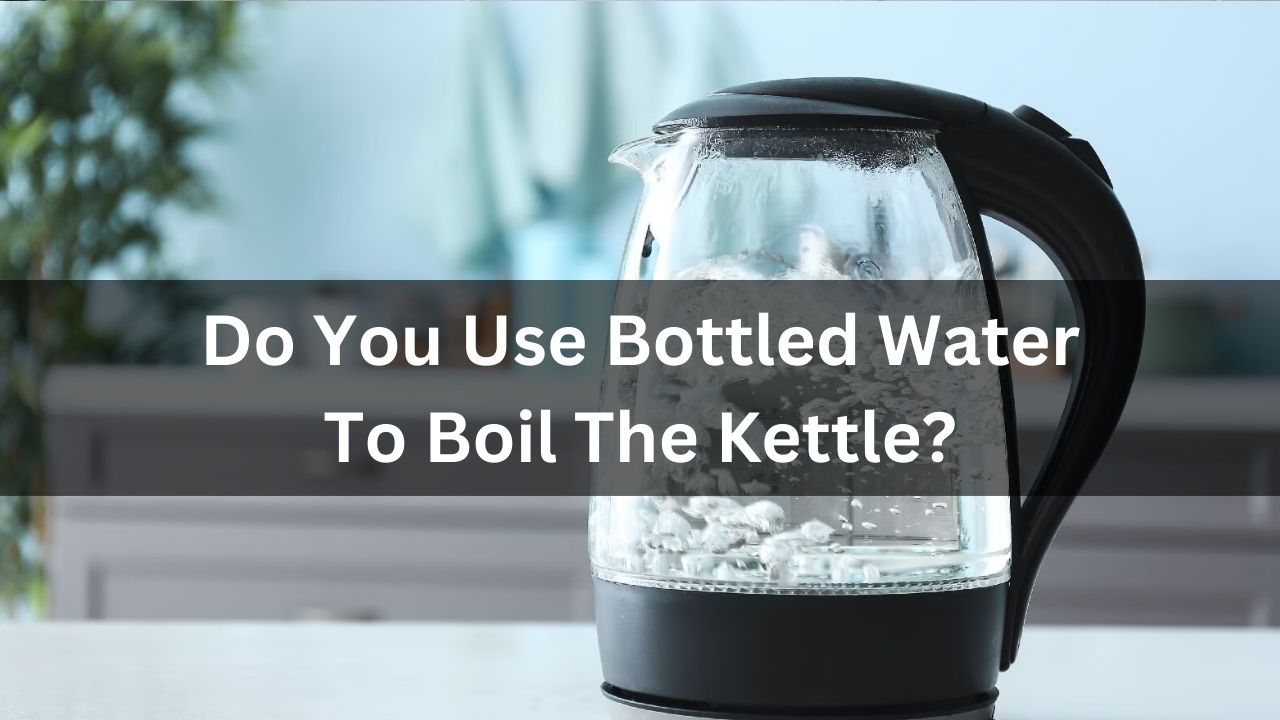
If you were to ask many people whether or not you should use bottled water in your kettle. They would answer yes. Before using bottled water, always make sure that the bottled water has not expired.
Because plasticizers leach into water from plastic bottles after the expiry date. Before that date, no problem, beyond that date, well you take your risks.
Experts never recommend using bottled water for the kettle. Bottled water contains minerals that’s why it comes in the definition of hard water.
Hard water mostly forms a limescale layer. The limescale layer badly affects the kettle.
The article will tell you what type of water you should use for boiling in a kettle. It will also clear the effects of bottled water on the kettle.
Contents
Why Do People Prefer Bottled Water For Kettle?
Most people prefer to use bottled water in the kettle for many reasons including convenience, and quality.
Convenience:
As we all know we all have a busy life routine. If our tap water contains contaminants, we don’t have time to boil it. So for our convenience, we mostly use bottled water. We are so used to bottled water that we even make tea with it in the kettle.
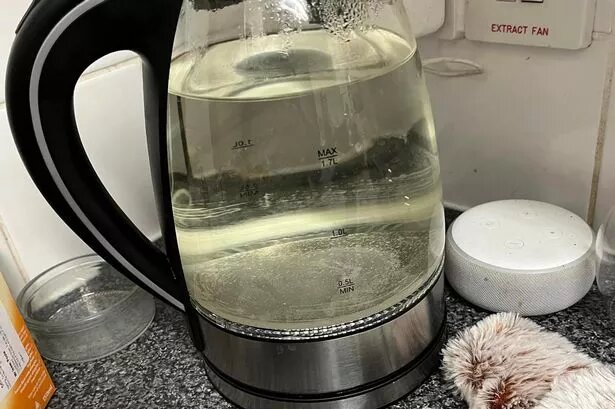
Quality:
Due to high pollution present underground contaminates the water. That decreases the quality of tap water day by day. Bottled water is stored after boiling and adding minerals to it.
It contains minerals like calcium, magnesium, carbonates, chloride, and potassium. These minerals increase the quality of bottled water.[1]
Also Read: Is it unsafe to use a kettle that’s rusty?
Should I Use Bottled Or Tap Water In The Kettle?
Tap and bottled water both have their benefits and side effects. You should use clean, fresh tap water in your electric kettle to provide the best-tasting hot water. Additionally, it also lowers the possibility of mineral buildup in the kettle.
If you have access to clean tap water, you don’t need to use filtered or distilled water in your electric kettle, as some people may choose to do.
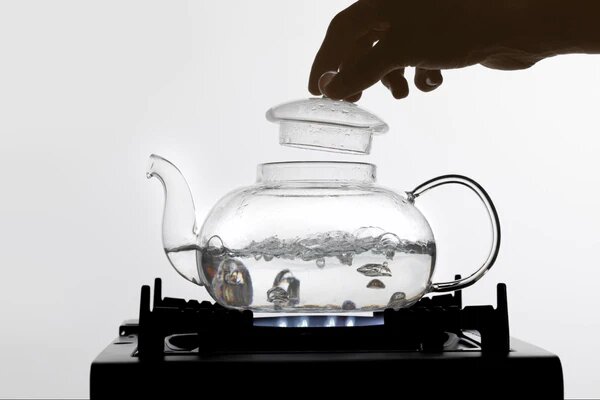
In this case, your tap water contains harmful chemicals like lead, chloramines, and mercury.
Then you should prefer to use bottled water. Because these chemicals are highly dangerous for health. The hazardous element lead can harm human health even in small doses.[2]
Also Read: Should You Leave Water In A Kettle Overnight?
Should We Use Distilled Water In The Kettle?
We remove contaminants and minerals from water to change it into distilled water. That’s why many people prefer to use distilled water in the kettle. There are many benefits of using distilled water in the kettle.
Reduces Health Hazards:
As we all know distilled water is sterile. It never contains germs, contaminants, and harmful chemicals. So, there is less chance of becoming ill by drinking it. Polluted tap water contains contaminants and chemicals like lead and mercury.

Reduces Cleaning Efforts:
Minerals like chlorine and magnesium are not present in distilled water. For this reason, it never forms a limescale layer in the kettle. It saves your kettle and also reduces the cleaning effort.[3]
Also Read: Also consider: Is it safe to leave the tea kettle plugged in?
Is It Safe To Boil Water In A Plastic Kettle?
Plastic electric kettles leach chemicals that can be harmful to your health. These chemicals are some of the same ones found in plastic products that are not safe for humans or animals.
Plastic kettles contain BPA (BPA stands for bisphenol A). The latest research shows its connection with diabetes, cardiovascular diseases, and High BP.
If we constantly use plastic electric kettle for boiling water. Then we definitely get some serious health issues by drinking this water.
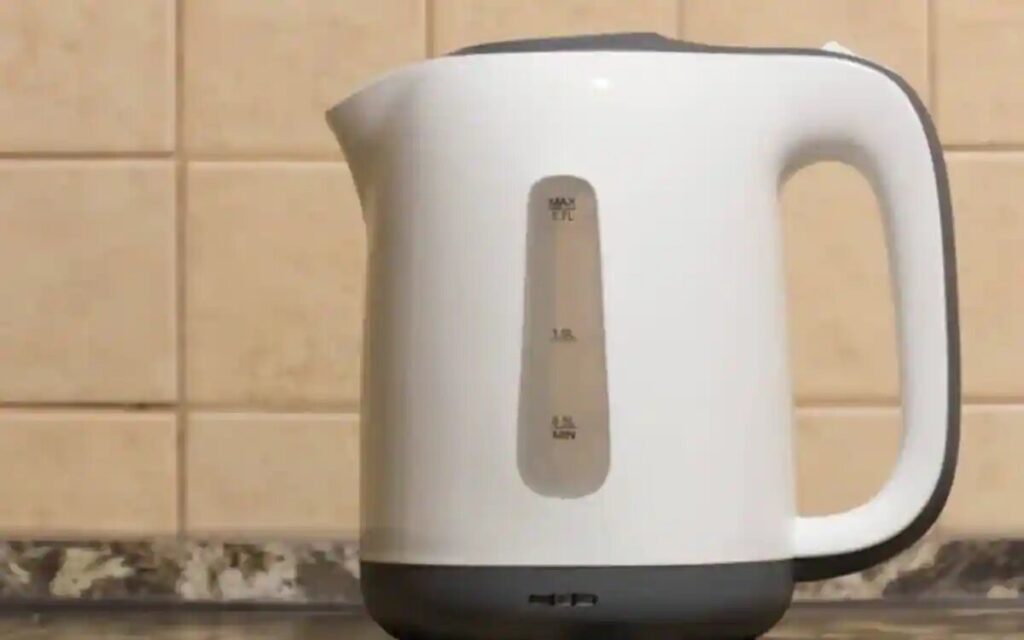
Plastic kettles are lightweight than plastic metals but they also have less durability period.
That’s why we shouldn’t use plastic kettles to boil water. If you want to boil water then you should use stainless steel kettles.[4]
Also Read: s it permissible to have a kettle in my university dorm room?
Side Effects Of Bottled Water On The Kettle:
There is no doubt that bottled water enhances the taste of tea, but we can’t overlook its side effects. As it contains a high amount of minerals.[5]
Formation Of Limescale:
As we already know bottled water is hard water due to a high amount of minerals. It contains a rich amount of Calcium (Ca), Magnesium (Mg), Chloride (Cl-), and potassium (K).
Calcium Is the main culprit in limescale formation. When hard water remains in the kettle for too long, it forms the limescale (CaCO3) layer.[6]

Effects Of Limescale On The Kettle:
Limescale can cause clogging in household appliances including kettles. It badly affects the material of the kettle. Due to this, it decreases the lifespan of the kettle along with its performance.[7]
Affects The Taste:
Sometimes, when we make tea in the kettle from bottled water, it gives a different taste. Mineral water is very hard (mineral-rich) and could impart a harsh or metallic flavor to your tea.[8]
Also Read: Is It Dangerous To Boil Water In A Plastic Electric Kettle?
Summary:
We all use bottled water in the kettle for making tea for convenience or health issues. Because you can easily use bottled water anywhere, anytime. It contains large amounts of minerals which increase its quality.
At the same time, these minerals cause problems in the kettle. When we mostly use this water in the kettle, its minerals like calcium and magnesium form limescale in the kettle.
This limescale badly affects the kettle.It reduces its performance along with its durability.
If your tap water is not polluted then it is preferred to use it to boil the kettle. Tap water enhances the taste of tea and reduces the limescale formation.
Distilled water is the ideal choice for use in a kettle. Because it is not involved in limescale formation and never alters the taste of tea. There are fewer health hazards in using distilled water in the kettle.
FAQs:
Q: What kind of water do you use in a kettle?
A: We should use tap water in the kettle. It contains fewer minerals, so less chance of limescale formation. Additionally, it gives the best taste to the tea. In case tap water is polluted you should use distilled water.
Q: Can we use Evian water in the electric kettle?
A: Natural spring water is called Evian water. You can surely use it for drinking due to its rich minerals. But it can leave a white crust in the kettle after use. That’s why we shouldn’t use it in the kettle.
Q: Is bottled water good for kettles?
A: Due to the high concentration of dissolved minerals in bottled water, it is hard water.Although hard water has the advantage of tasting good, it can nevertheless cause issues in the household, such as the buildup of lime scale in kettles. Mineral water and spring water are the two main categories of bottled water.
Q: Why do plastic kettles not melt?
A: We mostly use kettles for boiling water or making tea. Plastic like propylene has a melting point of 160 degrees while the water boils at 100 degrees. Water starts boiling before plastic melts.
Q: Is it advisable to use fresh water every time you boil the kettle?
A: Reboiling the same water can lead to a higher concentration of impurities. Merely adding new water doesn’t eliminate accumulated minerals from previous use. It is recommended to pour out the old water, rinse the kettle, and refill it with fresh water for each use.
Q: Are there environmental concerns associated with using bottled water in a kettle?
A: Yes, using bottled water can contribute to plastic waste and environmental concerns. Using tap water or a water filter is often more environmentally friendly.
Q: Is it safe to use bottled water for boiling in a kettle?
A: Using bottled water in a kettle is generally safe, but it may not be the most economical or environmentally friendly choice. It’s essential to consider the water quality and the environmental impact of using single-use plastic bottles.
Q: Are there specific types of bottled water recommended for boiling?
A: Any potable and safe-to-drink bottled water can be used for boiling. Consider choosing water labeled as suitable for both drinking and cooking.
Q: Can using bottled water prolong the lifespan of the kettle?
A: Using bottled water may reduce the risk of mineral deposits in areas with hard water, potentially extending the kettle’s lifespan. However, regular maintenance and descaling remain essential.
Q: Does using bottled water save energy when boiling?
A: The energy savings from using bottled water are typically minimal. The primary consideration should be the quality and safety of the water, along with the environmental impact of using disposable bottles.
Q: Are there any drawbacks to using bottled water in a kettle?
A: Using bottled water can be more expensive and less environmentally friendly than using tap water. Additionally, the plastic in some bottles may release substances when exposed to high temperatures.
Q: Can the type of plastic in bottled water affect water quality when boiled?
A: Yes, some plastics may release chemicals when exposed to heat. If using bottled water, choose bottles made from materials considered safe for hot liquids, and avoid leaving water in plastic containers for extended periods.
Q: Are there alternatives to using bottled water for boiling in a kettle?
A: Tap water is a convenient and often more sustainable option for boiling in a kettle. If concerned about water quality, consider using a water filter or boiling tap water and allowing it to cool before storing.
Q: Should I choose specific types of kettles if I use bottled water?
A: While there’s no strict requirement, kettles with stainless steel or glass interiors are less likely to be affected by water quality issues compared to those with plastic interiors.
Q: What are the environmental considerations of using bottled water in a kettle?
A: Using bottled water contributes to plastic waste. Whenever possible, consider using reusable water bottles or opting for tap water to minimize environmental impact.
Q: What are the potential advantages and drawbacks of using bottled water in a kettle, and how do factors like mineral content and purity influence the boiling process?
A: Explore the pros and cons of using bottled water in a kettle, considering aspects such as mineral content and purity and their impact on boiling.
Q: Can the choice of bottled water brands affect the taste of the boiled water, and are there considerations for users who prioritize a specific taste profile in their beverages?
A: Discuss how different bottled water brands may influence the taste of boiled water, providing considerations for users who have preferences for specific taste profiles.
Article You Might Be Interested:
Is It Dangerous To Boil Water In A Plastic Electric Kettle?
Can I Put Cold Water In An Electric Water Kettle?
Why Is My Kettle Making A Buzzing Sound?
Why Shouldn’t You Boil A Kettle When Empty?

